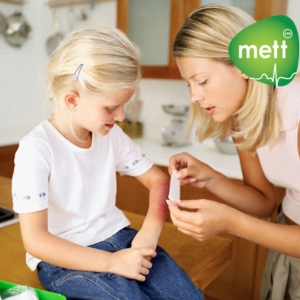Injuries and medical incidents happen all the time but when something does happen what should be your first port of call? There are many options open to us now and going to A&E isn’t necessarily the best option for you or the NHS, so what should you do and how do decide? And should you call 999 or 111?
A&E and calling 999
A&E is for serious injuries and life-threatening emergencies. This can include those presenting with signs of a heart attack or stroke, difficulty breathing, severe injuries and blood loss, seizures, and sudden and rapid swelling. For children the list also includes the inability to stay awake, being limp and floppy, and colour change to skin, tongue or lips.
If any of these serious injuries or life-threatening emergencies occur you should call 999 for an ambulance to get assistance, or if there is someone able to take the person to hospital safely you can make your own way there.
Urgent treatment centres
Most areas have urgent treatment centres that can handle many injuries or ailments that are non-life-threatening and traditionally people may have gone to A&E to get treatment. Urgent treatment centres can treat and diagnose sprains and broken bones, treat and dress wounds, and investigate symptoms such as stomach pain, breathing difficulties, vomiting, diarrhoea, skin issues and high temperatures. They can also offer assistance for mental health concerns.
Some other types of NHS treatment centres are also available but may not offer as full a range of services as the above, this includes minor injuries units or walk-in centres.
Calling NHS 111 or 111 online
NHS 111 is designed to help those who need medical assistance straight away to get the right support from the right place. They will help direct you to the right service for your medical needs whether that is from A&E, urgent treatment centre, out-of-hours GP, call back from a nurse, specialist support, your own GP, pharmacist or looking after yourself at home. So, if you are unsure where you should go for help then use either the NHS 111 call centre, online tool, or app to assess your medical needs.
NHS 111 can book an arrival time for you at A&E so that they know you are coming and can help them avoid overcrowding. However, this is not an appointment.
Treatment at home
If you can treat the ailments or injuries at home then you should as long as no warning signs are being ignored for heart attacks or strokes, or breathing isn’t impacted. If you are in doubt seek guidance from NHS 111.
Treatment at home can also include visiting your pharmacist for advice as the first port of call for minor ailments, they are the first line of defence in treating ailments and will advise you whether you should contact/visit your GP, urgent treatment centre or A&E.


